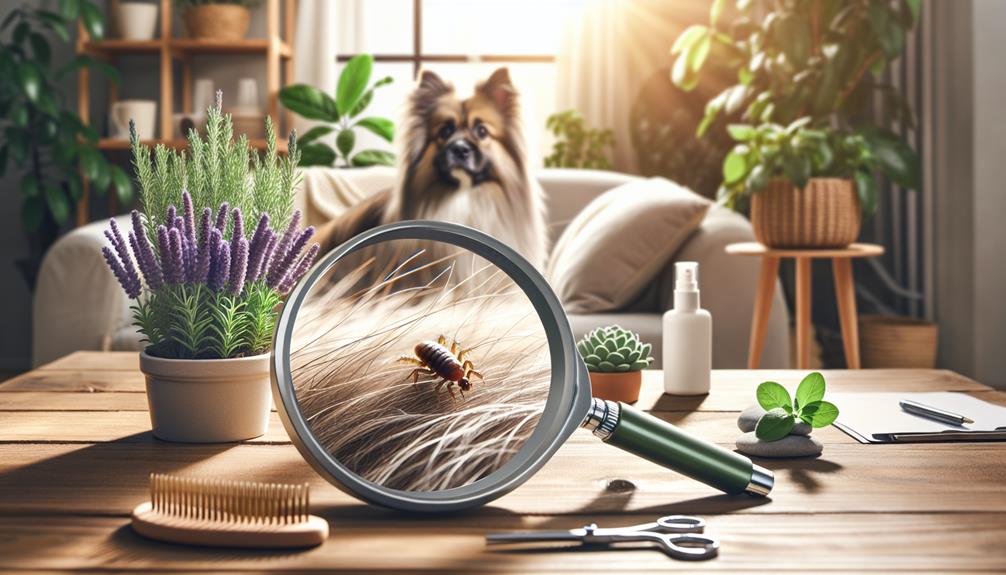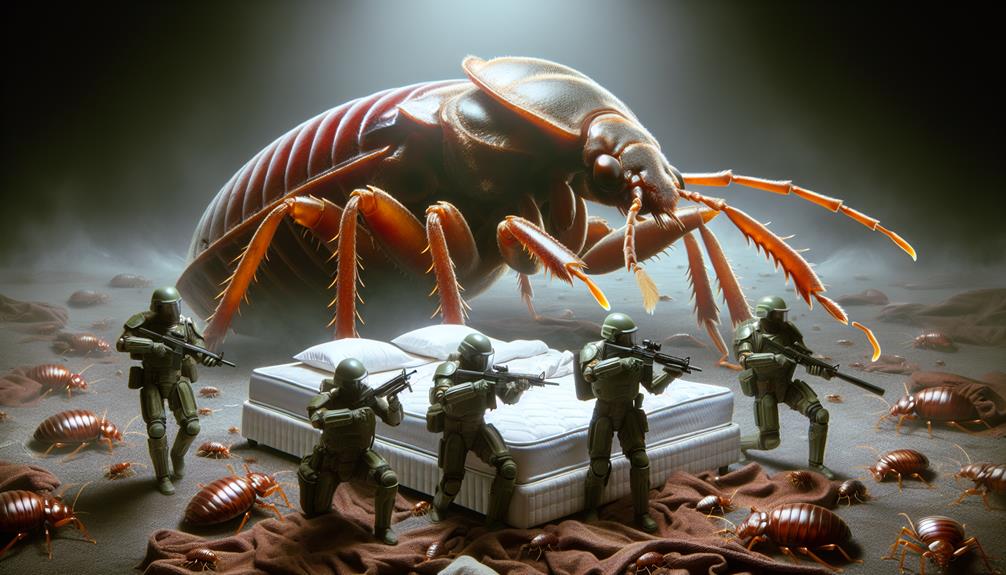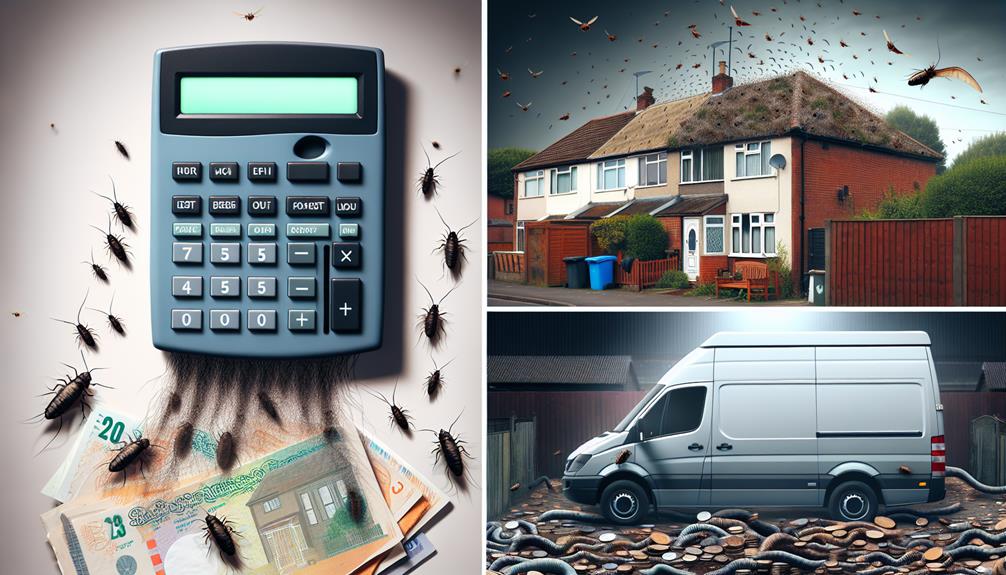Pest control is a crucial aspect of maintaining the hygiene and health of any home. As homeowners, we often find ourselves grappling with various types of pests such as rodents, insects, and other vermin that can wreak havoc in our living spaces.
In an attempt to combat these pesky creatures, many products have flooded the market claiming to provide effective pest control solutions. However, not all products are created equal, and it's important for homeowners to know what works and what to avoid when it comes to pest control.
As a pest control expert/specialist, I understand the importance of using safe and effective methods to eliminate pests from homes. There are numerous options available on the market today; some may be more reliable than others depending on the type of pest problem you're dealing with.
In this article, we'll explore different types of pest control products for homeowners and examine their effectiveness against common household pests. We'll also delve into why certain products work better than others so that you can make informed decisions about which ones will best suit your needs as a homeowner who wants nothing but peace of mind within their own dwelling place.
Overview Of Popular Pest Control Products
Pest control products have become a popular choice for homeowners who want to keep their homes free of pests. There are various types of pest control products available in the market, each with its own strengths and weaknesses.
Natural alternatives include using essential oils or herbs that repel insects, while chemical sprays contain toxic substances that kill pests on contact.
Electronic repellents use ultrasonic waves to deter pests from entering the home, but their effectiveness is still debatable.
Traps and baits are other options for controlling pests; these can be used to capture rodents or insects without harming them.
Prevention methods such as sealing cracks and holes in walls and floors can also help prevent pests from entering the home.
It's important to note that not all pest control products work equally well for every situation, so it's crucial to choose the right product based on the type of pest problem you're facing. In the next section, we'll discuss the pros and cons of different product types so you can make an informed decision about which one will work best for your needs.
Pros And Cons Of Different Product Types
As discussed in the previous section, there are a variety of popular pest control products available to homeowners. However, it is important to understand the pros and cons of different product types before making a purchase.
One major decision to consider is whether to use chemical or natural products. Chemical options may be more effective for immediate results but can pose health risks if not used properly. Natural alternatives may take longer to work but are generally safer for both humans and pets.
Another factor to consider is whether the pest problem is indoors or outdoors. Indoor solutions should prioritize safety, as they will likely be used in areas where people spend significant amounts of time. Outdoor options may require a stronger approach due to larger area coverage and resistance from pests.
Additionally, homeowners must decide between DIY methods or professional services. While DIY options may seem cost-effective at first glance, a lack of expertise could result in ineffective treatment and further damage. Professional services provide experienced personnel who can tailor their approach based on specific needs and circumstances.
Ultimately, understanding these categories - Chemical vs Natural, Indoor vs Outdoor, DIY vs Professional, Repellent vs Killer, Long term vs Short term - allows homeowners to make informed decisions about which type(s) of the product(s) best suit their unique situation.
In the next section, we will discuss recommendations for safe and effective pest control solutions based on these factors.
Recommendations For Safe And Effective Pest Control Solutions
As homeowners, it's natural to want a pest-free home. However, the use of harsh chemicals can be harmful to both humans and pets. Luckily, there are several safe and effective options for pest control that don't involve toxic chemicals.
One solution is to opt for natural alternatives such as diatomaceous earth or essential oils like peppermint or lavender. These options are chemical-free solutions that work well against pests such as ants, spiders, and even rodents.
Additionally, prevention methods such as sealing cracks and crevices in your home can help keep pests from entering in the first place.
For more serious infestations, professional services may be necessary. Pest control companies have access to stronger products that can effectively eliminate pests without posing harm to you or your family. DIY options may also be available but should only be attempted with caution and proper research on safe application methods.
Ultimately, the best course of action will depend on the severity of the problem at hand. Natural alternatives and prevention methods are great starting points for minor issues. For larger infestations or persistent problems, seeking out professional services is likely the safest and most effective option.
By taking these steps towards pest control, homeowners can ensure a comfortable living space without sacrificing their health or safety.
Frequently Asked Questions
What Are Some Common Mistakes Homeowners Make When Using Pest Control Products?
Common homeowner mistakes when dealing with pests include relying too heavily on DIY remedies that may not be effective, failing to take proper pest prevention measures such as sealing cracks and crevices, and improperly disposing of pest control products.
It is important for homeowners to prioritize safety and avoid harm to pets and children by carefully reading labels and following instructions for use.
As a pest control expert, I recommend consulting with professionals before attempting to handle infestations on your own.
By utilizing safe and effective treatment options, homeowners can effectively manage pests without putting themselves or their loved ones at risk.
Are There Any Natural Or Diy Pest Control Remedies That Are Effective?
Eco-friendly alternatives, herbal remedies, essential oils, homemade traps and natural deterrents are all potential solutions for homeowners seeking to control pests.
These options offer a safe and effective alternative to traditional pest control products that may contain harmful chemicals.
Herbal remedies such as mint or lavender can repel insects like ants and spiders, while essential oils like tea tree oil can be used as an insecticide.
Homemade traps made from household items such as sugar and water or vinegar and dish soap can also capture unwanted pests without the use of toxic substances.
Natural deterrents like planting certain herbs or flowers in your garden or using citrus peels around entry points are other viable options for keeping pests at bay.
Overall, these methods provide effective means of controlling pests while minimizing damage to the environment and human health.
How Can Homeowners Prevent Pests From Entering Their Homes In The First Place?
Preventing pests from entering homes is crucial to avoid infestations and potential health hazards.
As a pest control specialist, I advise homeowners to seal any cracks or crevices in the walls, doors, and windows. This will prevent the entry of insects such as ants, cockroaches, and spiders.
Additionally, it is essential to eliminate any standing water around the house since mosquitoes breed in stagnant water. Trimming bushes near the house can also help reduce hiding places for rodents and other pests.
Properly storing food items in tightly sealed containers can prevent attracting pantry pests like beetles and moths.
Lastly, installing screens on all doors and windows is an effective way of keeping out flying insects while allowing proper ventilation inside the home.
Following these tips can significantly reduce the risk of pest infestation within your home.
What Is The Best Way To Dispose Of Unused Pest Control Products?
Proper disposal of unused pest control products is a crucial aspect that homeowners should take into consideration.
The environmental impact, legal regulations, and safe storage are essential factors to consider when disposing of these items.
Effective waste management techniques must be implemented to reduce the negative impact on our environment caused by hazardous substances in pesticides.
Improper disposal can lead to soil and water contamination, posing health risks for humans and animals alike.
It is also important to note that some donated options may not accept certain types of pesticides due to their harmful nature; hence it's imperative always to check with local authorities before donating any unwanted chemicals.
As a pest control specialist/expert, I advise homeowners to prioritize proper disposal practices as part of their household responsibilities.
Can Pest Control Products Harm Pets Or Children, And How Can This Be Avoided?
Pet-friendly options, child safety precautions, non-toxic alternatives, proper storage methods and potential health risks are all important considerations when it comes to pest control products.
As a pest control specialist, I understand the importance of finding effective solutions that do not pose risks to pets or children.
There are many pet-friendly and non-toxic alternatives available on the market today that can effectively repel pests without harming your loved ones.
Proper storage methods also play a crucial role in ensuring the safety of your family-keeping these products out of reach from children is essential.
It's critical to note that some pest control products may have severe long-term effects on human health if misused or overexposed.
Therefore, always read labels carefully before use and follow instructions precisely for optimal results while minimizing any potential health hazards.
Share this Post




